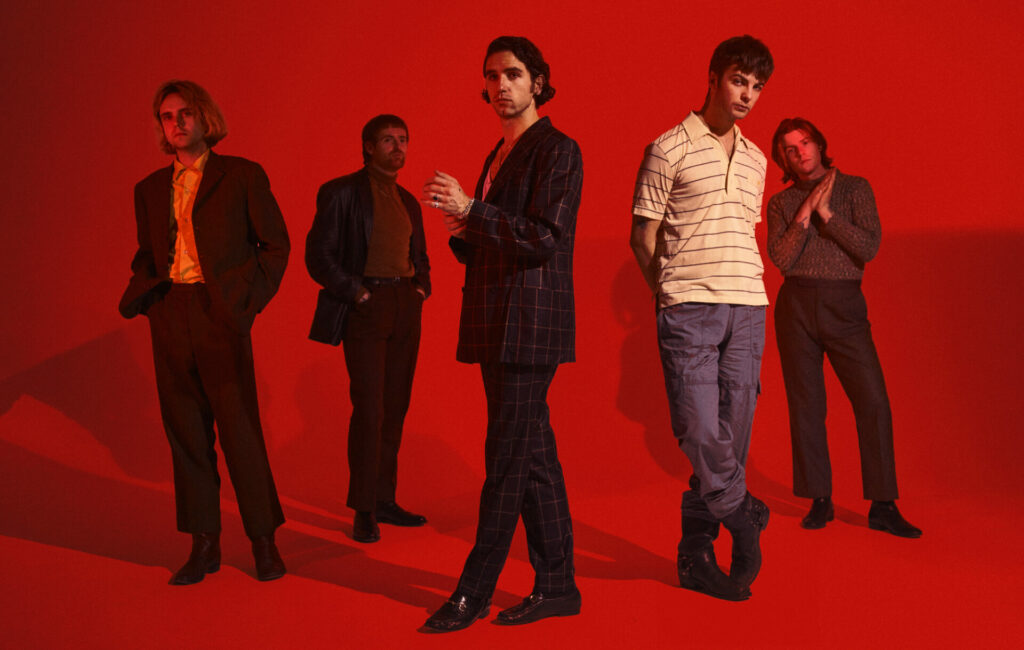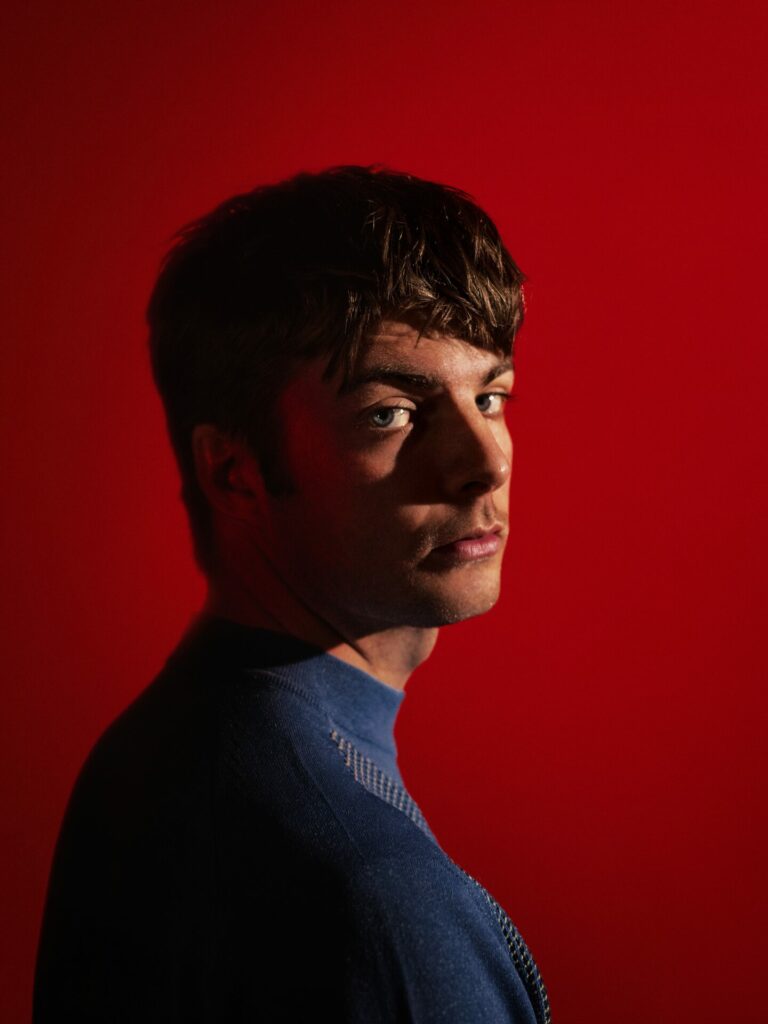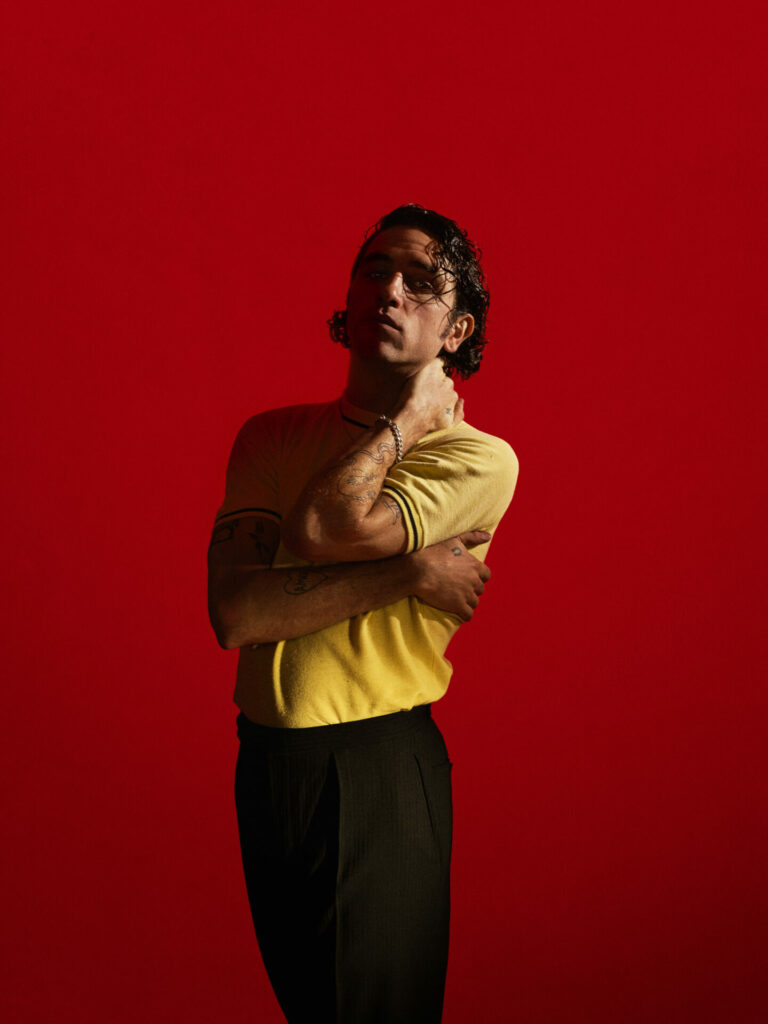Fontaines D.C. on ‘Skinty Fia’ and finding their groove
Dublin band Fontaines D.C. unveil a new sound on their latest album 'Skinty Fia', as their roots continue to inspire them
By Nick Reilly

When Fontaines D.C. first arrived with 2019 debut ‘Dogrel’, the Dublin band won plaudits for tunes that balanced subtle post-punk guitars against weightier themes of corruption, religion and Irish identity — all delivered by the intense vocals of frontman Grian Chatten.
The record netted them a Mercury Prize nod, while the follow-up, 2020’s ‘A Hero’s Death’, went one better with a Grammy Award nomination for Best Rock Album.
But their latest, ‘Skinty Fia’, which arrives later this month, might just be their strongest album yet. It builds on the groove of the last two, while mining new sonic and personal depths. These qualities are displayed on hit recent single ‘I Love You’, which is the closest thing the band have written to a love song, but one that also manages to become a haunting ode to the issues they believe are plaguing their homeland.
“It’s standing in the centre of our beloved home country as a multitude of things are brought to tragic ends in an apocalyptic state of affairs. That’s how it feels to me, and what I felt when I wrote it,” Chatten has said previously.
Rolling Stone UK caught up with Chatten and guitarist Carlos O’Connell to discuss the new album.
Grian, how does ‘Skinty Fia’ move the sound of Fontaines D.C. on from ‘A Hero’s Death’?
GRIAN: There’s more breathing space and a groove is established. There’s no groove on the first two records in the same way and we’re not leaning into something so much on this record. There’s more of a Trojan Horse thing of creating a mood to draw the listener in, and once we’re in then our ideology and ideas come out. But it’s easy listening first, through songs like ‘Roman Holiday’. I’d say that song was quite inspired by Kurt Vile; I saw him play in Croatia two years ago when we were playing there and I envied him. The sun was going down and he was able to stand there and chill out. We spend ten minutes before going on stage slapping each other in the face! I envy someone who can send a text to his kid, go off on stage and then just play really well.

The album track ‘Big Shot’, meanwhile, is the first Fontaines track you’ve written, Carlos.
CARLOS: The lockdown gave me time to do it and I was feeling confident about it. We went back to the thing we’d do years ago of sending each other tunes on email, which felt amazing. It’s a song that tries to make sense of finding value after achieving something you’ve worked on for a while. You’ve finally achieved this thing, but you get there and things don’t feel any different. It’s an existential song and trying to expose the idea that maybe there is no value, even if we’re led to believe that we’re important. I don’t find the value of anything in that song, but I definitely exposed what I think is worthless and not as important as I believed.

Thematically, there’s some real darkness, too. ‘I Love You’ sounds romantic, but references how 800 babies were discovered in a mass grave at the Bon Secours Mother and Baby Home in Galway.
GRIAN: I was trying to write a love song, but I found this thread of emotional connection and I got into one of those states where you black out while writing and a few hours later you look back and realise everything you wrote really came from somewhere. I found myself visually in the middle of this tornado of shit that was going on in Ireland and England. All of the spirits of things I take issue with; things that are upsetting but you ignore them. It was all raised from the dead at the same time and I was trying to make sense of it all.
You’ve also spoken about how the record is influenced by your struggles with guilt about leaving Ireland and moving to London.
GRIAN: I’d spoken so much about Ireland in the past few years, and it became associated with us almost as a brand, even if that wasn’t our intention. So it felt like we were using Ireland as inspiration, our source material for songs; we were blowing that horn. But I was happy as fucking larry with my flat in north London with a little balcony when things weren’t locked down.
Meanwhile, my little brother only went to college face to face for the first time last week, even though he’s been there for a few years now. I feel like I have been disconnected somewhat, in a privileged life, from Ireland’s issues. ‘I Love You’ tries to be the reconnection.
The opening track ‘In ár gCroíthe go deo’ is named after the Celtic phrase that the family of an Irish woman in Coventry had to fight to have inscribed on her grave.
GRIAN: Nationalism is on the rise everywhere, populism, too, and a love for ‘dear old Blighty’. Imagine a nation as a ship and when something happens, an element of shame in the national consciousness will bring the boat down. But at the same time, the other end will rise up and that’s the pride. You look at the historical statues being pulled down recently and there’s gonna be a resurgence of people thinking their freedom of speech and national identity is threatened.
I do think recently it’s become a bit of a thing again, this treatment of Irish people, and because there’s a slight lack of discourse about the treatment of Irish people by English people in London — compared to other communities who are treated much worse — English people think there’s a bit of a free pass.
Irish people for a while have not wanted it to be there: there’s a rhetoric that it’s not like it was in the 80s and 90s. And it’s not, but it is still there and Irish people have been putting up with it in attempts to move on.
CARLOS: There’s a poisonous nationalism that’s grown in England, too, and I think it’s down to the lack of truthful history that’s taught. There was something telling I experienced. It was Remembrance Sunday and someone raised a glass to all the fallen soldiers of the British Army at a dinner I was at. He raised this glass in front of me, and I just didn’t know if I could raise a glass to the people who were responsible for all these horrors in Ireland. I don’t think he did it on purpose, but I just don’t think he knew the things that came with saying that. I found that so dangerous, the fact that someone could so easily say something like that. The experience of that song is just two years ago, it was considered the language of the enemy. And that’s absolutely insane.
Your turnaround has been pretty prolific, this is your third album since 2019…
GRIAN: I never wanted to be stuck as a new band, so writing ‘A Hero’s Death’ just allayed those fears. Three albums in and we’re not a new band. But we’ve always found necessity to writing: the first album had us with a lot to say about Dublin. The second was an attempt to find solace in the maelstrom of a hectic tour schedule, but this record finds us moving countries and having a reappraisal of Irish identity through the eyes of London. There have been three distinct chapters.
But we’ve written fuck all in the past year, which validates for me that we only write when we have reason to do so. For now, I just want to be the band that makes ‘Skinty Fia’ for a while ’cos I really like the album and I think that’s a fucking cool band to be. I don’t want to put parameters around it, because I just want to enjoy it.
Are you more settled than you previously were, then?
GRIAN: There’s more longevity in the live shows we do now. It’s more easy to access the tunes and the way I feel because I was overwhelmed with adrenaline. It was getting silly: it got to the level where I was cutting my face with a plastic knife and it struck a vein once when we were playing in Amsterdam. I had insomnia and I got really depressed on tour, so I’d get the knife I used for bread and butter and just do that. It went too deep and I spent the first four songs of the gig just slapping blood away from my face. There’s no more of that and I feel connected with the audience more. I don’t feel like it’s me against them and I’m not locking horns with that.
